Family inspiration
Hey there, fellow adventurers
A note from one of the authors
Alexis Kossiakoff’s Family History in Russia and China
I love old things. When I was a child, I was fascinated by the large, square, heavy-lidded box kept in my father’s study. It was filled with a collection of mysterious objects from my Russian family. There were all kinds of treasures: a beautiful glass candle holder, an army officer’s epaulets (decoration worn on the shoulders), heavy coins, tarnished bullets, old postcards from 1920s China and, my favorite, photographs. It was here that I first met my grandfather’s cousin, Lucy.
My grandfather, Alexander, was an only child, and I imagine that being around his age, she was more like his sister. Lucy had intense, haunting eyes made all the more mysterious by the fact that no one knows what happened to her. She disappeared from our family story when, instead of moving to the United States, her branch of the family returned to the Soviet Union. Over the years, I’ve often wondered what she was like and what became of her. As a result, she became the inspiration for Lucy in this book, a character who is an amalgam of what I imagined the real-life Lucy to be: brave, caring, adventurous and loyal.
The epaulets and bullets belonged to my great-grandfather Ivan Kossiakoff who was a cavalry officer in the Russian Czar’s army. Sensing that the end was near for the Czar and his government, Ivan arranged to get himself stationed far to the east, in Siberia. He then managed to get his wife and son, Alexander, on the second-to-last train out of Russia to China before the Bolsheviks took over the Russian railway system and stopped all outbound trains. Like Papa in our story, my great-grandfather Ivan stayed behind to fight. Alexander and Ludmila (my great-grandmother) settled in the city of Harbin, which became a safe haven for many refugees escaping from Russia. Along with his cousin Lucy, aunts, uncles, and grandmother, my grandfather, Alexander, created a new life while they waited for the war to end and for Ivan to return. In the meantime, Ivan sent letters to his son which served as inspiration for the letter in our prologue.
Once the war ended and Ivan returned, the family moved to the city of Hankow in central China, now part of the city of Wuhan. Though my grandfather did not share very much about his childhood in China, I do remember him telling me a few stories about life in Hankow. He described the constant fear of warlords, and whenever one of them outside the city started making trouble, he said, “The French were the first ones to roll out their cannons!”
After the war, the family became “stateless,” meaning they had no passports, no embassy and no country to call their own. Like Lucy, they found a home in China, a place to create a new chapter in their lives from the ashes of war, until years later emigrating to America.
My grandfather’s stories stayed with me. I later shared them with my husband Scott, a novelist and historian with a relationship to China stretching back to his university days. After Scott and I moved to China, I knew I had to use my grandfather’s life story to tell a new story in my own way. This book is a tribute to my grandfather and to my own ten years living in China.
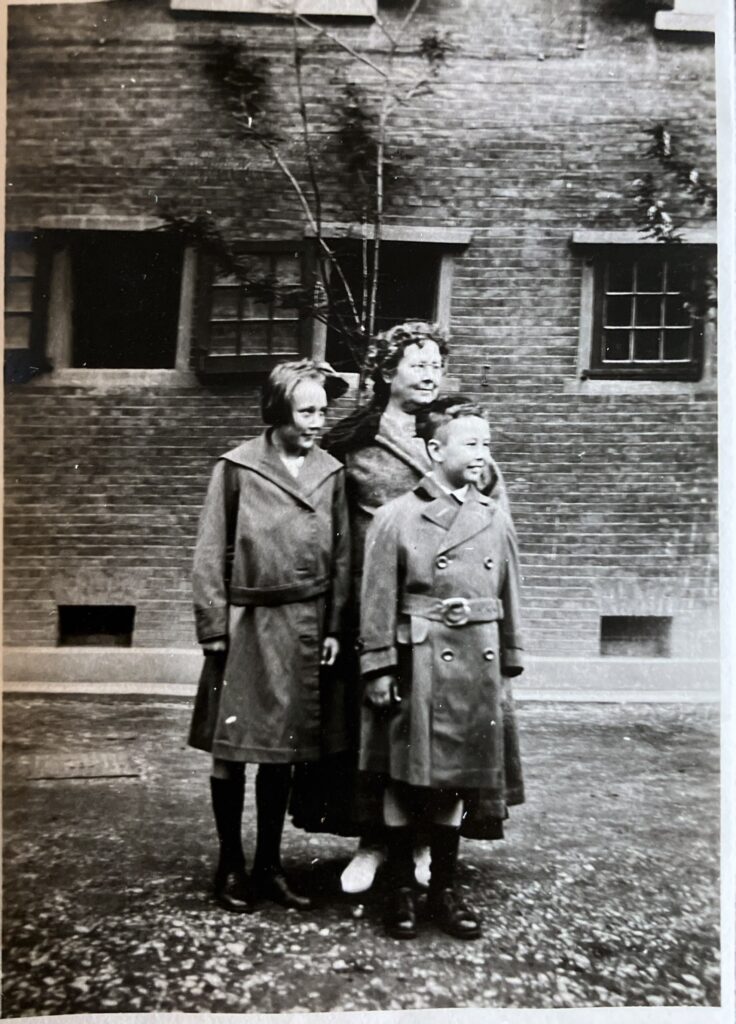
Alexander, his grandmother and cousin Lucy
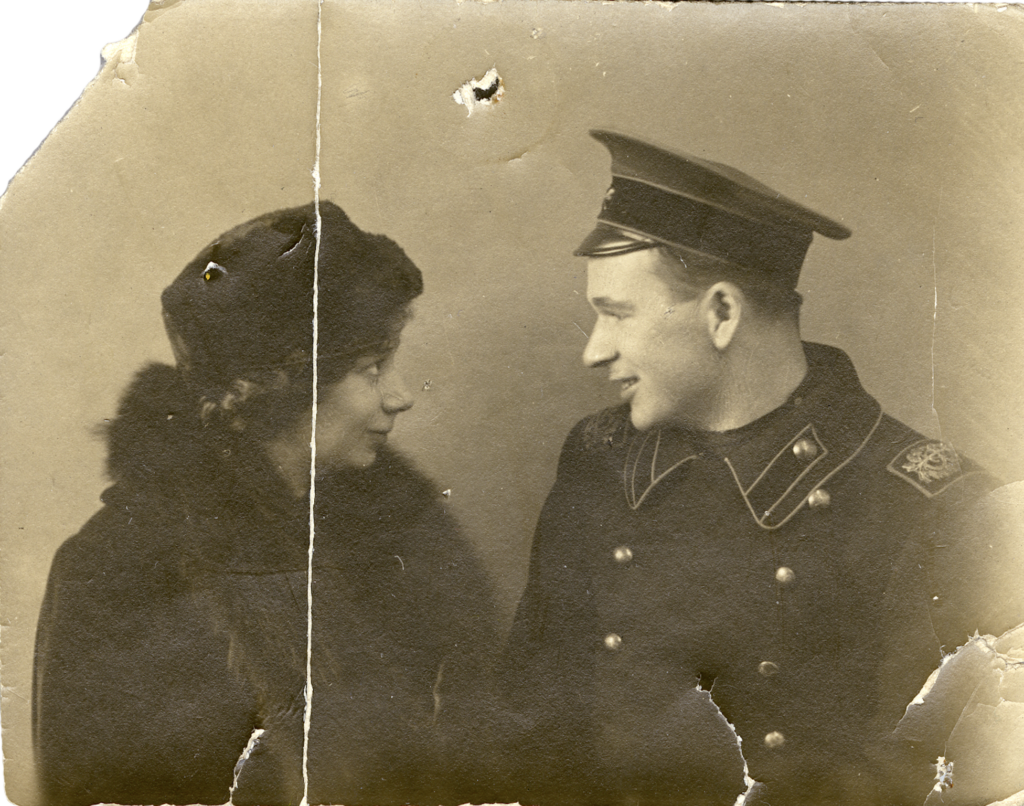
Ivan and Ludmilia’s engagement photo in St. Petersburg (Petrograd)
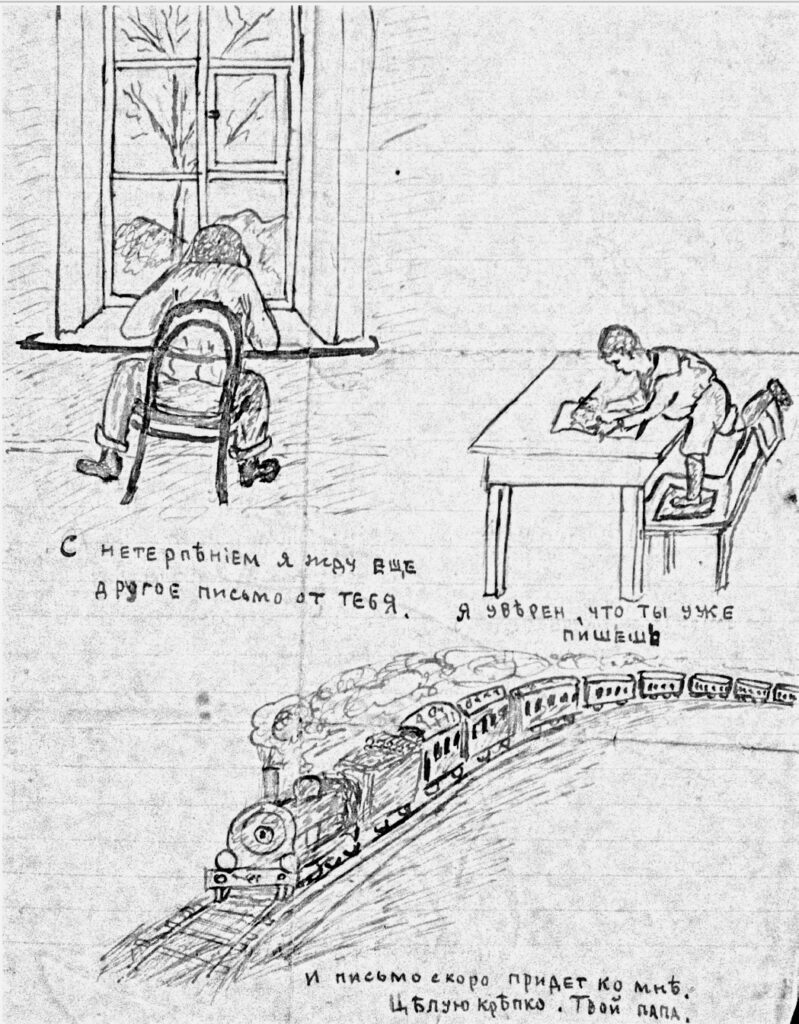
A letter Ivan wrote to his son, Alexander, while he was still fighting in Russia
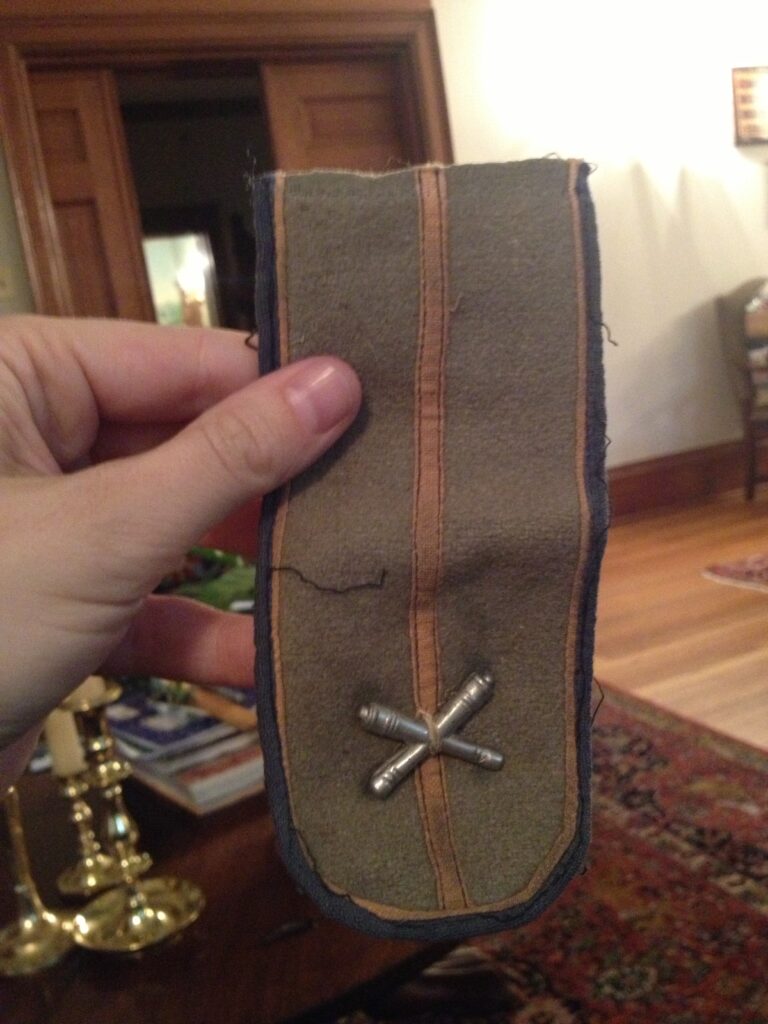
Ivan’s epaulets
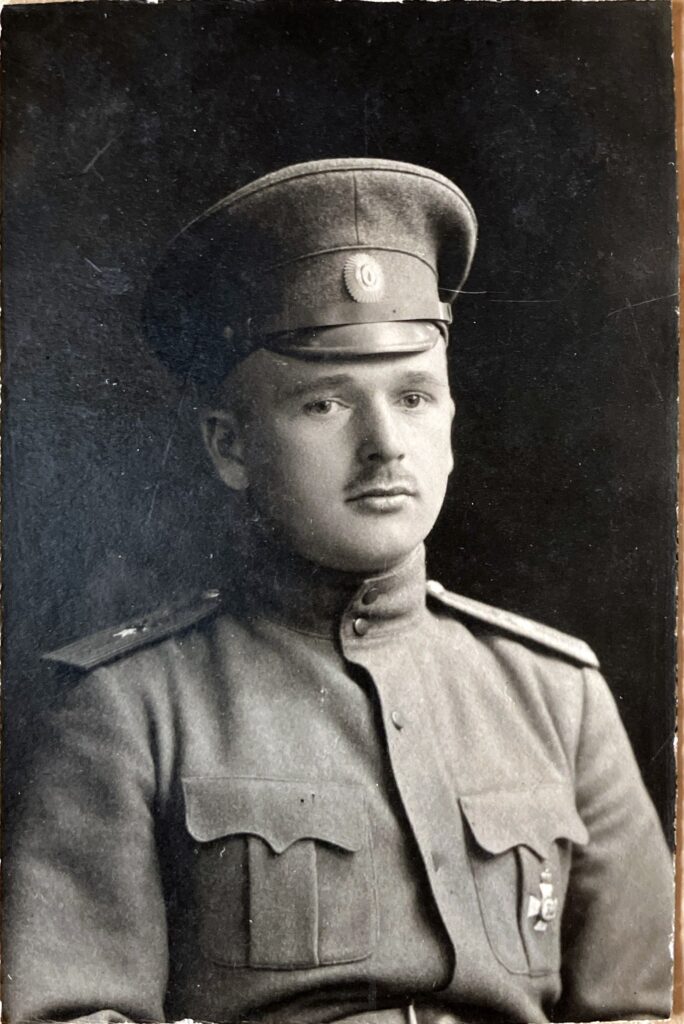
Ivan in uniform
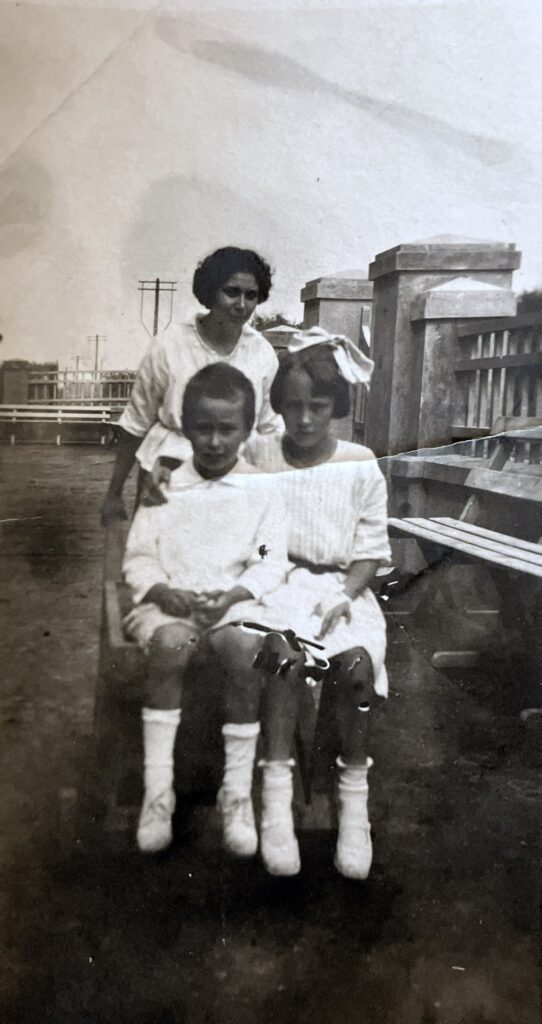
Lucy, Alexander and Ludmilia in Harbin
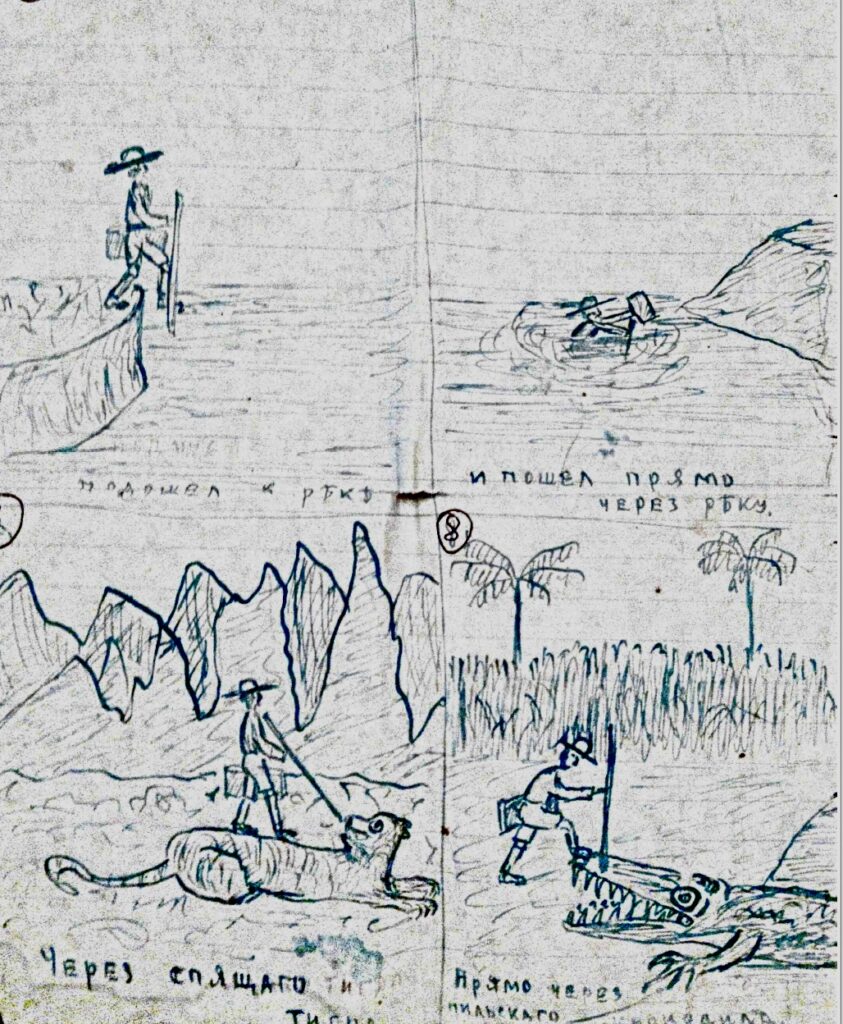
Part of a letter that inspired the prologue